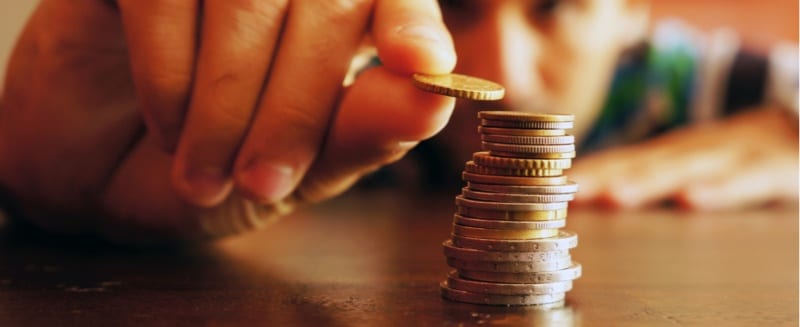You’ve probably got some cash stashed—if you’re subscribing to this newsletter you know how important I think it is to have enough in savings—but your cash probably isn’t working that hard for you.
Even if you keep a meaningful percentage of your assets in cash, the bank is probably paying you next to nothing on it. With interest rates as low as they are, you’re lucky to earn a few bucks a year on cash. The national average interest rate is .06 percent, so for every $10,000 saved, you’re earning only $6 a year, according to the FDIC.
But you could be earning more. I recently met Gary Zimmerman, founder of MaxMyInterest.com, a website that automates the process of optimizing what you earn on your cash deposits by tracking interest rates and helping your cash move between your own FDIC-insured bank accounts (including your existing checking account) to chase the best rates. While Max is not a bank, Max’s system is capable of delivering up to 0.80 percent more by taking advantage of the lower costs and higher rates offered by leading online banks such as American Express, GE Capital and Capital One 360 (formerly known as ING Direct). Max is designed to handle big blocks of cash, and it can optimize up to $5 million in cash and still stay within FDIC limits.
The good news is that people with less cash in their savings account can also benefit. Max has no minimum balance requirement. As interest rates rise along with the economy and jobs, making sure your cash continues to earn the best interest rates will help you grow your savings.
You can certainly take some lessons from Max to earn more on your cash even if your savings are more modest. After all, you work hard enough to earn your money. You should let your money work for you.
Here are three ways to make your savings work harder for you:
1. Scout around for the banks paying the best rates on deposits. Check out the top-earning savings accounts online and see what they can offer. The Max system includes online banks, which have lower overhead costs because they don’t maintain brick-and-mortar branches and therefore can offer higher interest rates to depositors. Most online banks offer upwards of .6 percent, some nearing 1 percent, which is an easy way to gain a little extra every year, especially if you have a substantial amount in savings. Even if you don’t plan on moving your money around, finding a savings account with higher returns is worthwhile.
2. Watch out for “teaser” interest rates. Zimmerman started out optimizing his cash manually, monitoring interest rates being offered by different banks and shifting money around accordingly. When a teaser rate dropped at one bank, he’d shift his cash to another. (Anyone who has done this knows it’s a lot of work, especially if teaser rates drop soon after you move your money.) Still, by moving your money around, you may benefit from promotional or new customer rates.
3. Watch out for high or hidden fees. Not all savings accounts are free, and some charge fees for closing an account, so if you’re planning on moving your money over time to chase the best rates, think about how much it will cost you end-to-end. As long as you’ll save more than it costs, you’ll come out on top. None of the online banks in the MaxMyInterest system charge these fees.
Full disclosure: I met Max’s founder Gary Zimmerman when he asked my content company, Think Glink Media, to provide social media consulting services for MaxMyInterest.com. Listen to an interview with Gary from my WSB Radio show.
[amazon_link asins=’1524763438,B012TH34DQ,B00FU3ZKN4,B075V234VL’ template=’ProductCarousel’ store=’thinkglink-20′ marketplace=’US’ link_id=’893a2c80-0b6a-11e8-83df-cd4de0ec8afe’]







Leave A Comment